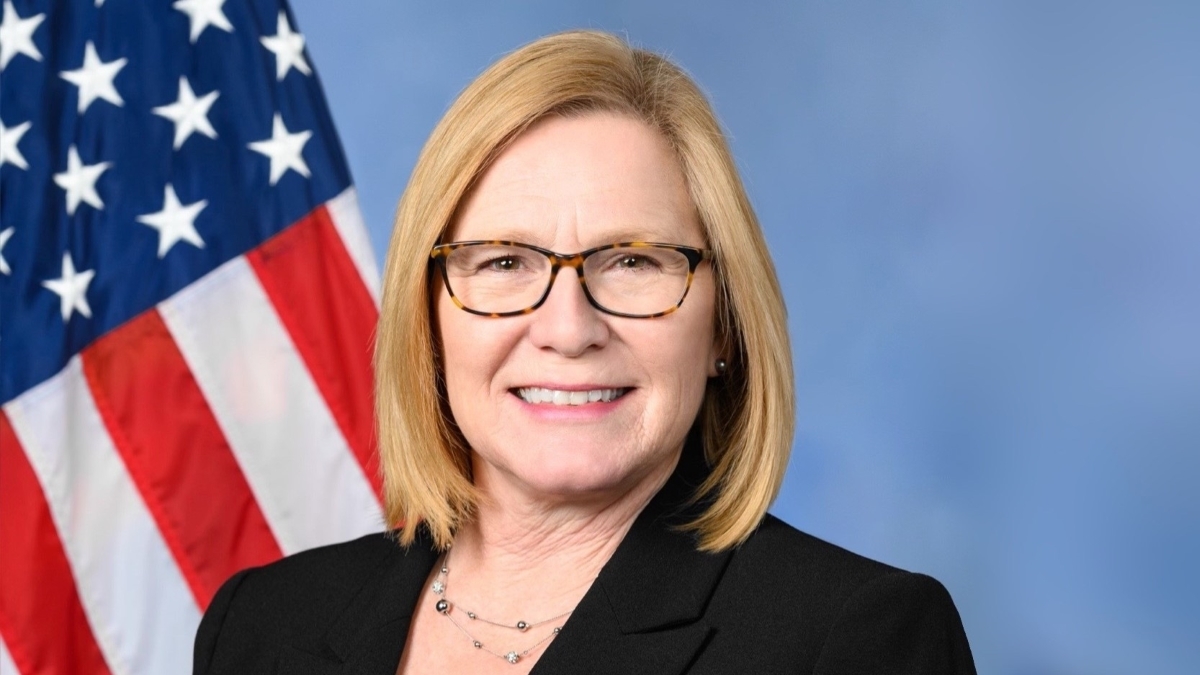Michelle Fischbach | wikipedia
Michelle Fischbach | wikipedia
Washington, D.C. - This week, Congresswoman Fischbach joined a bicameral, bipartisan group introducing the Safeguarding American Value-Added Exports (SAVE) Act.
"For years, the European Union has abused geographical indicators as a non-tariff trade barrier, limiting U.S. agriculture export opportunities simply because they rely on using common food names that have been established for decades," said Rep. Michelle Fischbach (R-MN). "The SAVE Act protects common names to ensure U.S. agriculture products can be sold worldwide. I am proud to join my colleagues in introducing this legislation that will help restore market access."
“Requiring U.S. producers to change the names of their food is confusing for consumers and costly to producers and manufacturers,” said Rep. Dusty Johnson (R-SD). “The SAVE Act ensures American producers retain vital access to foreign markets in a time that may be more critical than ever.”
“Monopolizing common food names could have major ramifications on American producers and our food supply chain,” said Rep. Jim Costa (D-CA). “This bipartisan bill will protect American goods from unfair trading practices, that could minimize access to global markets and increase costs for consumers.”
“American producers face barriers in getting their agricultural products to global consumers due to unreasonable trade restrictions on common, descriptive terms,” said Rep. Jimmy Panetta (D-CA). “I’m proud to co-lead this bipartisan legislation that would empower the United States Trade Representative and Secretary of Agriculture to negotiate fairer trade agreements that give American producers equal footing in these markets. While geographical indicators are important to maintaining the character, quality, and pride of products from our community, we can continue to protect those markers without allowing discrimination against American products.” “By exploiting valid geographical indication protections, global competitors have for decades tried to limit competition, block imports, and restrict American-made products from being able to use common food and beverage names,” said Sen. John Thune (R-SD). “I’m proud to lead this effort in the Senate to help level the playing field for U.S. producers by ensuring they can use common food names and preserve and expand foreign market access for their products.” “Our Made in Wisconsin agricultural and food products are rightfully world-renowned for their quality. But, when foreign countries penalize our producers for using common names like parmesan or cheddar, their unfair trade practices stunt the growth of Made in Wisconsin businesses on the international market,” said Sen. Tammy Baldwin (D-WI). “That’s why I’m proud to support this bipartisan legislation that ensures Wisconsin producers and farmers can continue to compete internationally, grow their businesses and keep Wisconsin on the map around the world.”
“If the EU were to have it their way, Americans would no longer be able to drink champagne while eating gouda and prosciutto on crackers here in America,” said Sen. Roger Marshall (R-KS). “While this may at first seem like a small attack on the hors d’oeuvres industry, the consequences of the EU getting their way would go well beyond the charcuterie board. They would close off the global market to new entrants and create trade barriers to reduce competition, control prices and create mass consumer confusion. The SAVE Act will ensure that the U.S. government fights back against the EU’s campaign to ban U.S. market exports.”
This legislation has the support of key agricultural groups:
"Throughout the entire dairy supply chain,” explained Jim Mulhern, president and CEO of National Milk Producers Federation. “The dairy producer community thanks Senators Thune and Baldwin and Representatives Johnson, Costa, Fischbach and Panetta for their introduction of the bipartisan SAVE Act today. This legislation will raise the ambition of the U.S. government to preserve the rights of U.S. dairy producers to continue using cheese names long established as generic. We look forward to continuing to work with USDA, USTR and our allies in American agriculture to ensure that U.S. dairy farmers and cooperatives can compete on a level playing field around the world.”
“The misuse of geographical indications has been hurting U.S. dairy for years, and the European Union continues its efforts to monopolize common cheese names like parmesan and feta,” said Krysta Harden, president and CEO of U.S. Dairy Export Council. “American dairy exporters welcome the introduction of the bipartisan, bicameral SAVE Act today that will direct the U.S. government to take decisive action to counter the EU’s destructive campaign. This new emphasis on protecting common names is a much-needed step in the right direction to ensure that our producers can sell their products in markets around the world.”
“The lack of strong action by previous administrations has allowed the European Union to misuse and abuse its geographical indications, hurting U.S. exporters in several markets,” said Jaime Castaneda, Executive Director of Consortium for Common Food Names. “This new emphasis on protecting common names is a much-needed step in the right direction to ensure that our producers can sell their products in markets around the world. For years, the European Union has been using illegitimate GIs to boost its own producers at the expense of others, putting a tremendous political priority on giving European companies a leg up over producers in the U.S. and other countries,” continued Castaneda. “It is time that our government takes a more proactive approach to tackling this challenge so that we can turn the tide to stand up for food and beverage producers relying on common names.”
“NASDA supports the SAVE Act which would retain the use of long-held generic food names and protects U.S. food, beverage, and agricultural products from foreign competitors and the restriction of U.S. trade,” National Association of State Departments of Agriculture CEO Ted McKinney said.
“I would like to thank Senators Thune and Baldwin and Representatives Johnson, Costa, Fischbach and Panetta for their leadership in introducing the SAVE Act today,” said Chuck Conner, president and CEO of the National Council of Farmer Cooperatives. “As Congress begins work on the 2023 farm bill, we strongly urge inclusion of this language in the final package. Doing so is essential to helping America’s farmers and their co-ops remain competitive in markets around the globe.”
“This legislation will bolster our government’s efforts to protect the rights of U.S. wineries to use traditional terms and generic winegrape varietal names and represents an important step in expanding access for U.S. wines to key markets around the world," said a representative from the Wine Institute.
Background: Generic food names such as parmesan and bologna have been recognized for generations. However, governments like the European Union have recently weaponized these names in trade agreements as protectionist barriers to market access by foreign competitors. The SAVE Act amends the Agricultural Trade Act of 1978 to define common names, and requires USDA and the U.S. Trade Representative to proactively negotiate with foreign trade partners to defend the right to use common names for agricultural commodities, and therefore restore access to their markets.
Original source can be found here.


 Alerts Sign-up
Alerts Sign-up